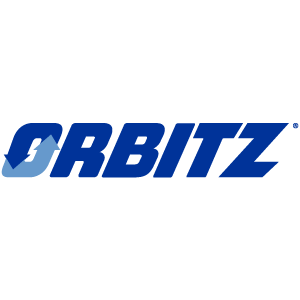A judge in Chicago ruled in American Airlines’ favor on Tuesday, denying Travelport’s request for a preliminary injunction against the airline and its efforts to pull its fares from Orbitz, the online travel agency of which Travelport is a part owner. Orbitz is also a major Travelport client.
Judge Martin Agran issued the ruling in Travelport, LP v. American Airlines, Inc. in the Circuit Court of Cook County, Illinois. The ruling said, in essence, that Orbitz can sue American later to sort out whether the airline breached its contract with Orbitz.
American said that it would immediately pull its content from Orbitz as a result of the court ruling. The airline will discontinue displaying and selling fares through Orbitz and its subsidiary, Orbitz for Business. Tickets for travel already purchased through Orbitz remain valid, but changes must be made through American Airlines reservations by calling 800-433-7300.
Travelport had filed the lawsuit to block American from following through on its threat to stop Orbitz from selling tickets on American’s flights as of Dec. 1. Travelport said the move would breach American’s contract with Orbitz and cause Travelport substantial harm. The dispute centers on American’s efforts to work with agencies using its Direct Connect platform.
Travelport said it was disappointed by the ruling and, although the motion for a preliminary injunction was denied, the case will continue on its merits until the request for a declaratory judgment is adjudicated. Travelport said that it remains confident that it will ultimately prevail on the merits of the matter.
Orbitz said that revenue it earned on American Airlines tickets and the associated ancillary products - including destination services, car, hotel and insurance - booked on Orbitz.com and Orbitz for Business accounts for 5 percent of its worldwide revenue for the nine months ended Sept. 30. It said that short term, “most of the impacted ticket volume will be replaced by other suppliers, and we will continue to earn most of the associated ancillary revenue.”
Consumer and business travel groups quickly criticized the court’s decision. The Business Travel Coalition said that the outcome unfavorably impacts Orbitz customers and Orbitz For Business corporate clients by reducing fare searching, booking and servicing efficiencies. The BTC said that travel professionals around the world have recognized that this lawsuit represents merely the opening skirmish in the larger battle for the future of the open marketplace for travel.
The Consumer Travel Alliance said that American is making a “heavy-handed” attempt to prevent consumers from easily searching and comparing its fares against those of other airlines.
Sabre also weighed in on the court decision. “We oppose American¹s efforts to impose a costly and unproven system on travel agents and travelers,” said Chris Kroeger, senior vice president, Sabre Travel Network. “We strongly agree with the many industry and consumer groups who believe American’s actions will make it much harder and more costly for agents and consumers to easily comparison shop among airlines, which will result in increased prices for consumers.”
The battle reflects the evolution of technology and airline marketing. Airlines are trying to differentiate themselves by product and services instead of price alone. They’re also doing one-to-one marketing, tailoring the product they offer to specific customers. A premium customer, for example, might get offers that occasional travelers would not. A customer who had been on a flight that made an emergency landing might get an offer for a free ticket.
New technology makes that kind of laser-focused marketing possible. GDSs say they have made huge progress in this area and are capable of giving airlines the ability to fine-tune their marketing offers. At least some airlines acknowledge this, including American Airlines.
American says that it wants to use technology that is better and less expensive than legacy technology. It says newer technology lets it market more effectively to specific customers and costs less. It says it is willing to work with GDSs but it wants to connect with them using newer technology.
Southwest is connecting to Travelport using Travelport’s Universal API. American says that it is just asking for the same opportunity with its Direct Connect program. A spokeswoman for American said the airline cannot be locked into using older, less flexible and more expensive technology when Southwest, the largest domestic airline, can use less expensive and more effective technology. “We want to do the same thing they are doing,” the spokeswoman said. For more information, visit www.travelport.com.
Steele Luxury Gay Travel www.SteeleTravel.com

